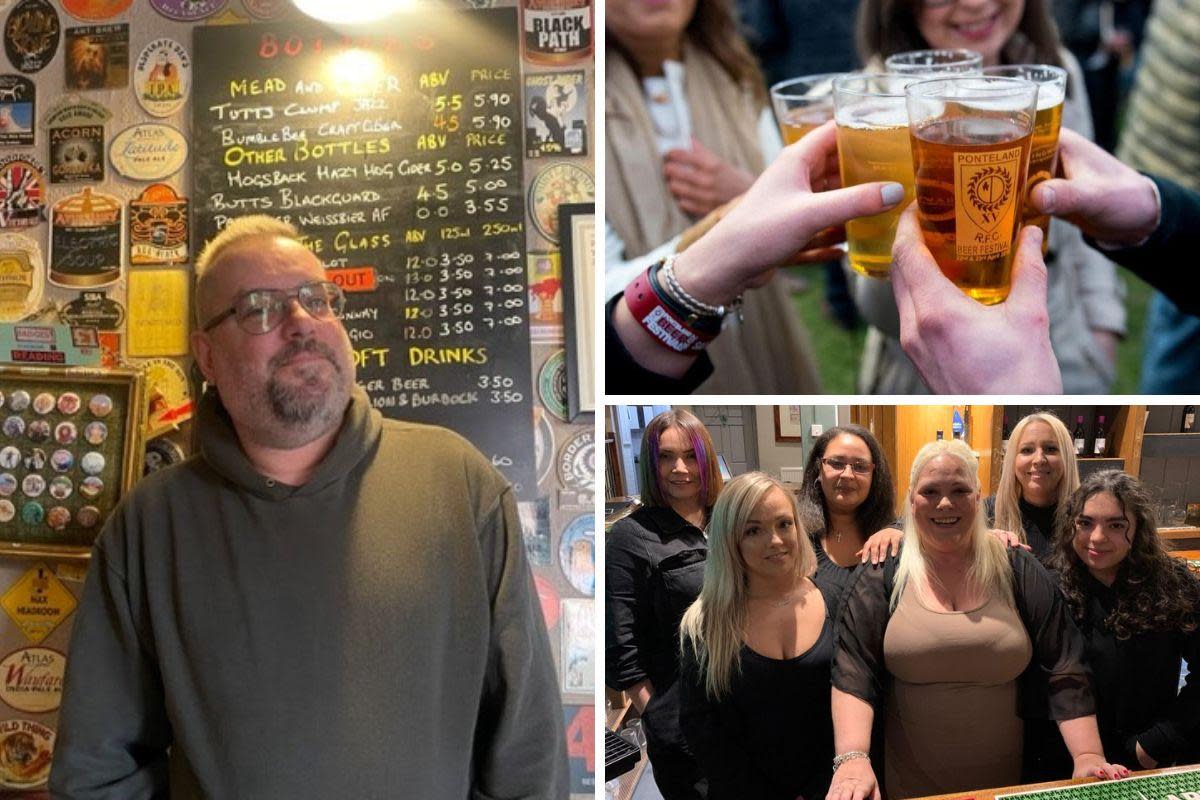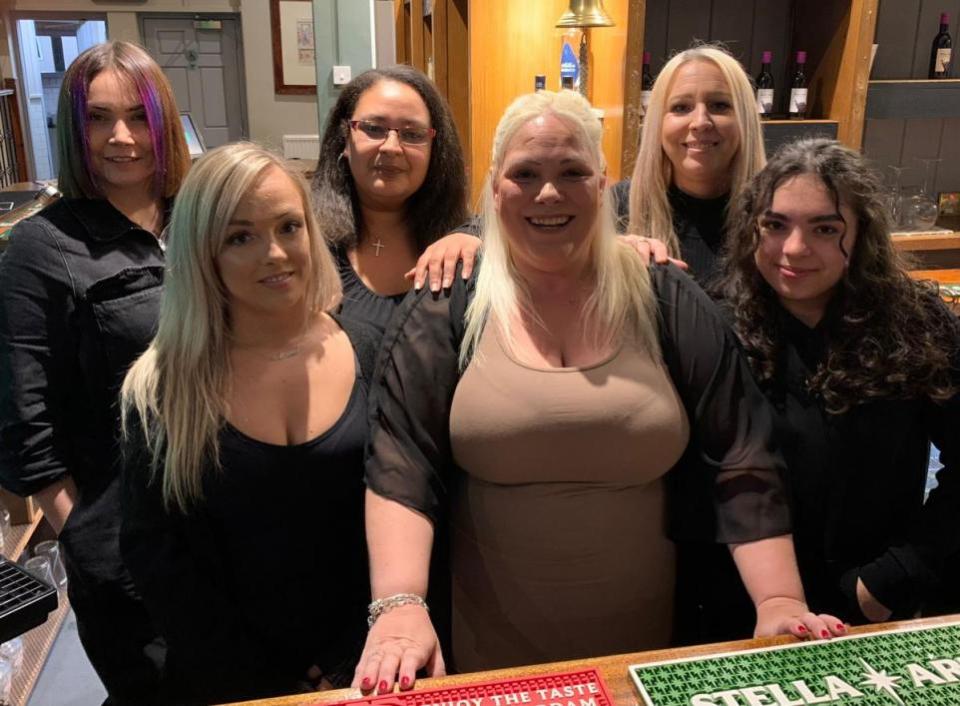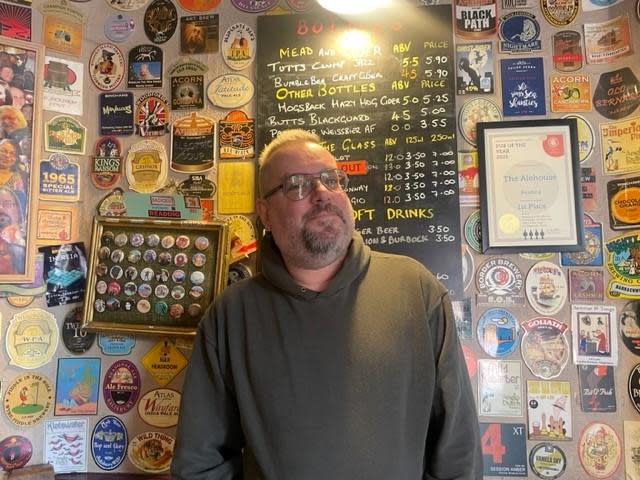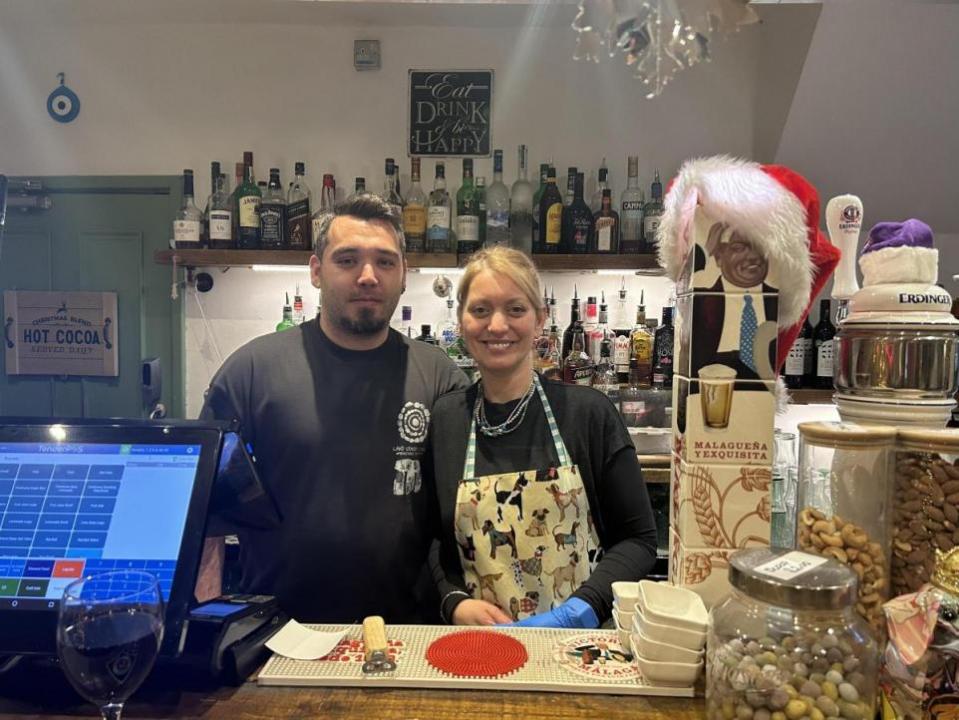How some Reading pubs are thriving while others are barely surviving

Have you ever stopped to think what the difference is between a dying and thriving pub in this economy?
With shockwaves rocking through Reading’s hospitality sector, the secret to running a successful pub in this economy is one that is closely kept among the lucky few.
The closure of pubs like the Lyndhurst and the Jolly Anglers however have all pub owners saying: “Am I next?”
This was only reiterated after new data revealed that 750 pubs were to close across the UK in the first half of 2024.
Despite these worrying figures, some of Reading’s oldest and most well-known pubs have armed themselves to weather the storm.
The Chronicle spoke to three pubs that have all labelled themselves ‘lucky’ as they quickly watch their neighbours lose everything to rising energy costs and increasingly falling footfall.
The Palmer Tavern
The Palmer Tavern is one of Reading’s most renowned public houses. Having recently changed hands, the pub has gone through a £360,000 revamp by Greene King as Samantha Lane and her all-female team move in from their previous home at the Royal Albion.
Although many surviving pubs are seeing a decrease in sales and footfall, Samantha is thriving after transferring to the pub under Greene King’s first ‘Nest Pub’ franchise scheme.
Samantha said: “I haven’t felt the impact like many of the other pubs have because we have managed to lower the prices here. Luckily, through the franchise I get a really good deal.
“So basically, I can sell my beer at 72 percent gross profit a year and it still be less than what it was and still make a profit. So people here are really happy.”
Although many pubs have been forced to raise their prices, the Palmer Tavern has reduced a pint of beer by 25p through the support they receive by Greene King.

According to the company, the franchise with Greene King allows them to provide support to the pub in times of difficulty.
Although Samantha is thriving in her new role, she experienced the same difficulties during her time as a tenanted landlady during Covid at a pub in Wokingham.
She added: “During Covid, I was forced to pay over £700 a week and we weren’t even open. You still have to keep the energy and gas going and if you turn the cellar off you have problems when you open up and that takes up the most energy.
The Ale House
Dating back to 1783, The Ale House is located right in the centre of Reading and provides customers with a cozy, phone-free environment to enjoy a relaxing refreshment.
The local public house has weathered its way through a few periods of hardships within the economy over the years and according to the pub, it is seeing very few changes.

Manager of The Ale House, Carl Mellors said: “We’re not doing too bad. There are plenty of others that are still struggling and it’s difficult. All the bills are going up and the number of customers are going down.
“So many pubs are closing because they are making sufficient profit and it’s really difficult to make a profit when all the bills are going up. You could put prices up but then you lose customers and if you don’t put prices up you can’t cover your costs.
“I think the reason we are surviving is because we’re quite niche, we’ve got a very good reputation and we get a lot of very loyal customers. It’s maybe not as difficult for us as it is for others and also we are quite small so our overheads are slightly smaller than others.”
The Fisherman’s Cottage
This popular independent public house has been opened for nearly 20 years under the current owner, Mrs Cigdem Atkins.
Located on the River Kennett, this is the only surviving boozer left by the river in Reading following the closure of the Jolly Anglers.
Over the years, the Fisherman’s Cottage has overcome a lot of diversity to ensure its survival.

Recent struggles came when the council blocked their main road with works, resulting in a complete loss of business.
Cigdem has admitted to having to sell a property in another country to keep her business open. Unlike other businesses, her savings and additional income have been enough to weather the storm following the devastation after Covid and rising costs.
She said: “Most of my customers who once came in 4 or 5 times a week can only come 1 or 2 times a month so we don’t really make much money. My suppliers keep putting the price up but if we put the price up with might lose more customers. It is really difficult to survive and most people don’t. Most business owners are going back to paid jobs.”

 Yahoo News
Yahoo News 
